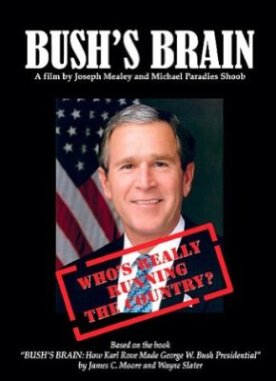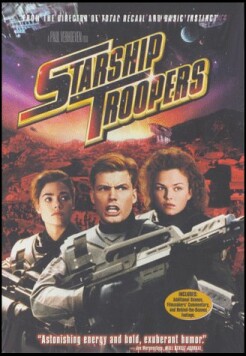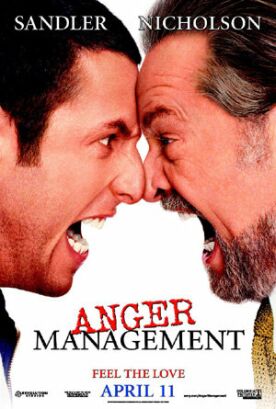Bush’s Brain
When historians come to write the history of American politics in the early 21st century, they will have far, less to say about the ostensible points of difference between the two major parties — the war in Iraq, taxes on the rich, the health care “crisis,” the health of the economy — than they will about the style and tone of election campaigning. After all, that’s what the candidates themselves prefer to talk about.We are well and truly into the era of the meta-election, in which the only issue of the campaign that matters is how each side is conducting the campaign — and whether one can make its own charges of dirty play stick stick against the other while continuing to play as dirty as they can themselves.
It is the era of, as the press materials for Bush’s Brain, put it: “the twenty-first century obsession with not simply defeating our opponents, but destroying them.” The one doing the destroying, in the view of Joseph Mealey and Michael Paradies Shoob, who are adapting a book by James C. Moore and Wayne Slater, is George W. Bush’s political adviser Karl Rove — though perhaps we’re not meant to notice that they’re doing their best to destroy him. The movie follows the pattern laid down by Michael Moore in Fahrenheit 9/11, only without the ambush interviews. The film-makers can only get Mr Rove on camera in old clips, a letter of complaint he wrote when the book came out and a hand-written card tersely declining their request for an interview. Even the one interview subject who is neither a political enemy nor an embittered former colleague is treated with respect, not harrassed and humiliated.
In theory, of course, one approves, but at the same time it is hard to ignore the increasingly apparent fact that it is the harrassment and humiliation in Michael Moore’s films which provides such entertainment value as they have. Without this rather distasteful human drama, they would be as dull as that of Messrs Mealey and Shoob. And duller than Bush’s Brain — the movie if not the organ — it is not easy to be. No one gets to where Karl Rove is without making enemies, and the field is littered with the corpses of his vanquished political foes. This movie resurrects them all, right down to his high school debating opponent who complains that Rove once brought to a debate a hand-truck laden with index cards, most of which were blank! Well, did you ever? Couldn’t they find anyone to whom he’d once given a wedgie? As when Michael Moore shows Paul Wolfowitz spitting on his comb or John Ashcroft singing a patriotic song, you’ve got to wonder if these guys can really be as bad as they’re represented as being if the bill of indictment against them includes such stuff at that?
The more serious charges against Rove are, also as in Fahrenheit 9/11, a matter of surmise and innuendo. On one occasion a Texas journalist suggests that, when he was working for the Bill Clements campaign against Mark White for governor in 1986, Rove bugged his own office so that the bug would be found and blamed on the other side — “because it was so Rove-like” that he should have done so.It’s hard to argue with evidence like that. Two opposition workers in another campaign who were jailed for soliciting campaign contributions while on state business are brought in to complain that Rove was behind the FBI investigation that caught them — one of them even breaks down on camera as he blames Rove for the death of his parents soon afterwards — though their only other claim on our indulgence is that they loved Texas and their families and that, well, everybody else did it.
In other words, you pretty much have to have made up your mind before seeing the movie that Rove is a bad guy, capable of anything. Fortunately, as Michael Moore has taught us, that’s not a problem in today’s political climate. There is a very large audience of movie-goers who are prepared to believe almost anything about George W. Bush and anyone who works for him. All it takes is a little hatred — and perhaps a strong sense of one’s own superiority. But anyone with a rudimentary sense of fair play and an open mind is likely to be appalled at movies like this one that start with the presumption not just of guilt but of the blackest kind of engrained wickedness. One of the interviewees fairly licks his chops as he imagines Rove in old age having a Richard III moment as all the victims of his evil and treachery come back to haunt him.
Regrettable as it is that political discourse in America has come to this, there is a still more regrettable by-product of the good-and-evil approach. For Bush’s Brain is also like Fahrenheit 9/11 in bringing onto the stage the bereaved family of a serviceman killed in Iraq and obscenely exploiting their grief for political ends. The same, of course, could be done with the victims of any war. The intensity of the grief of those who have lost loved ones tells us nothing either of the justice of the cause or of the political or military advisability of the action that resulted in the loss or of how much the leaders who decided on that action cared about it. What we do know is that Bush’s Brain is guilty of precisely what it accuses Karl Rove of. Whether or not he is guilty of subordinating everything else, including basic human decency, to political victory — and the case can hardly be regarded as proven — this movie undoubtedly is.
Discover more from James Bowman
Subscribe to get the latest posts to your email.






